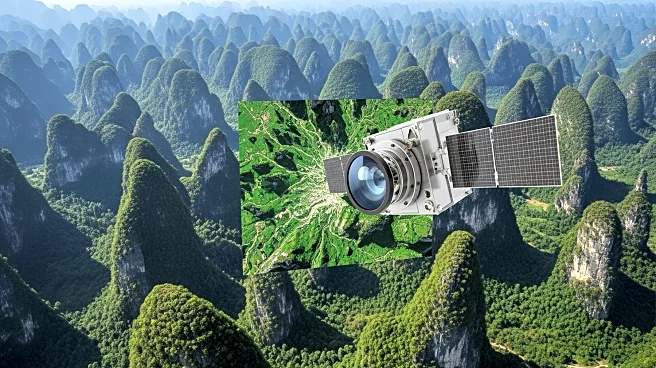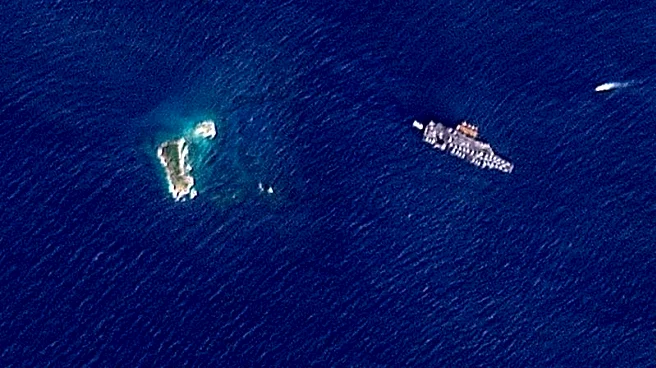What's Happening?
A new study has introduced the Karst Remote Sensing Ecological Index (KRSEI) to monitor ecological quality in Southwest China's karst regions. The research focuses on Guizhou Province, a region characterized
by diverse natural environments and significant human activity. The KRSEI integrates multiple ecological indicators, including vegetation greenness, moisture, rocky desertification, and land surface temperature, using principal component analysis. This index aims to provide a comprehensive understanding of the spatiotemporal dynamics of ecological quality and its driving factors. The study utilizes multi-source remote sensing imagery and geospatial datasets from 2002 to 2022, applying advanced statistical methods to detect spatial heterogeneity and evaluate ecological trends.
Why It's Important?
The development of the KRSEI is significant for ecological monitoring and management in karst regions, which are prone to environmental degradation due to human activities and natural processes. By providing a detailed analysis of ecological quality and its driving factors, the KRSEI can aid in the implementation of effective ecological restoration policies and sustainable development strategies. This tool is crucial for addressing issues such as vegetation degradation, biodiversity loss, and rocky desertification, which are prevalent in Guizhou Province. The insights gained from this index can inform policymakers, environmentalists, and researchers in their efforts to preserve and improve ecological conditions in karst landscapes.












